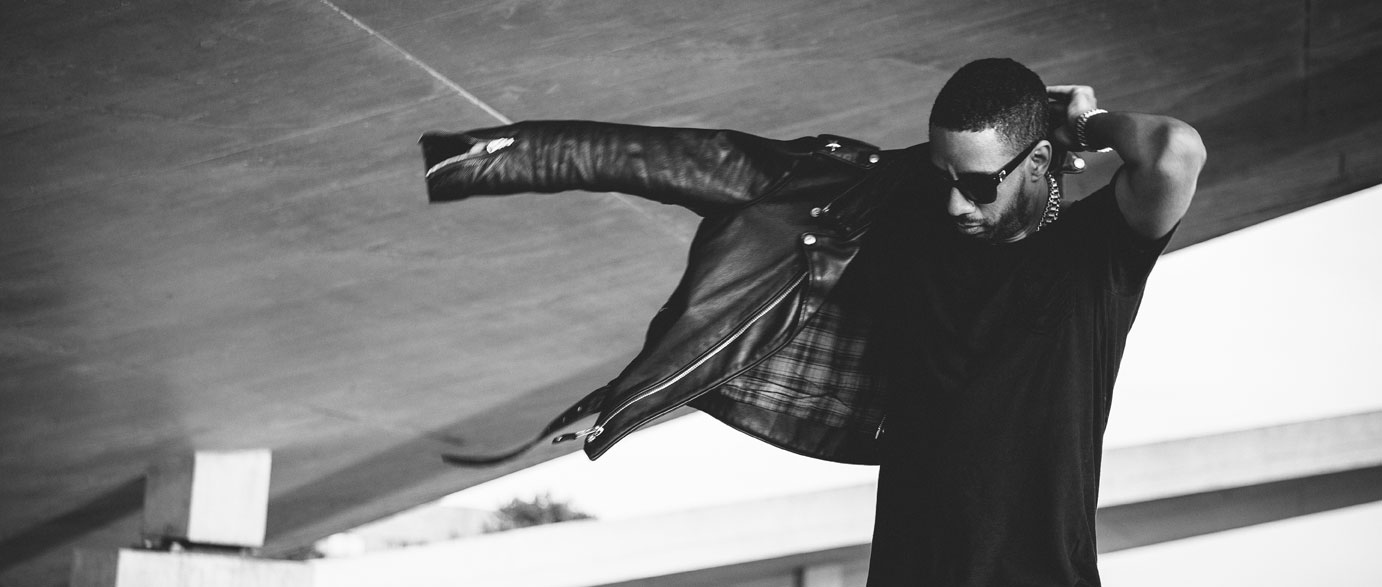By Ryan B. Patrick
“For a new artist to ascribe to an antiquated business model, really to me is the antithesis of creativity. If you are truly a creator, then are you looking to extend and push the boundaries of culture and artistic contributions of our generation. Then it is imperative that you adopt a model that empowers future creativity.”
Ryan Leslie is about the future. While you may know him from previous successes with hits like “Me & U,” “Diamond Girl,” and “How It Was Supposed to Be,” that was in the past. The multi-hyphenate artist — singer, songwriter, producer and entrepreneur —has transcended his past successes as a solo artist to become a champion for a new consumer model for artistic success. With his co-founded Disruptive Multimedia (DMM) platform, Leslie is committed to transforming the music industry by leveraging technology to gain stronger insights into what fans truly want. This involves communicating with audiences on a direct-to-consumer level with an eye towards better branding, stronger engagement and ensuring that artistic endeavours are appreciated and consumed on a more personal level.
For example, his latest Black Mozart album project was pushed out on an innovative level, via a $12 subscription that provides fans with not only a digital copy but also direct communication with Leslie and his team. We caught up with him to chat about the future of creating and selling music independent of the traditional music industry model.
What is the Disruptive Media platform all about?
Ryan Leslie: It was a decision. I had sold hundreds of thousands of records and I had no insight into who had actually bought the records. This was the only way for me to actually found out the real people behind the anonymous sales.
Is this independent, direct to consumer model the direction all artists should be going in?
If you want to have any decent chance of success, then this is the only way. If you look at any other venture that’s successful, most of the time they are successful because they take care of their customers and provide the best service. The only way to do that is if you really know what people want to hear from you — what they like and what project, merchandise or initiatives they want to support.
What are the challenges of adopting this model?
The real challenge is shifting the culture so that people understand that it’s okay to face the audience directly. The technology is secure enough that having people support you this way is comparable to them supporting you via iTunes. We’ve had thousands of transactions and no one has ever been a victim of identity fraud in our stores. If you feel safe buying something through Amazon or iTunes then this is just as secure to go direct.
As technology democratizes the process of selling directly to fans, why would any artist still look to get a traditional record deal?
A lot of artists are mostly concerned with exposure. The big record companies’ budgets are allocated towards major distribution channel that give the artist the widest exposure. But if that’s all an artist wants, then get it.
What do you have planned for the DDM platform at the moment?
We are in private beta right now and we will only work with artists that understand the future. It takes a level of talent and innovation
How do you define success under this model?
Success is if you are happy doing what you are doing. For me success is doing what I love every day. No creative restrictions, no schedule, no boss, no obligations — all options, opportunity and potential. That’s how I define success. For anyone’s that’s interested in making a sustainable living, one that underwrites your ability to create, the economics come down to the level of support from people who want to inspire you. It has nothing to do with how many supporters — looking back in history there were many creators that only had one small group of supporters like a royal family and artists would write plays, musical and full classical pieces. If you are an artist and you just want to share and create with the worlds and one fan decides to give you $100,000 to do it, I’d rather know that one fan than know 100,000 fans that give you a dollar simply on purposes of scale and engagement. As it stands right now, I know personally every fan that legally supported my last record. They stop me on the street! That’s never existed before and this is history. For a new artist to ascribe to an antiquated business model, really to me is the antithesis of creativity. If you are truly a creator, then are you looking to extend and push the boundaries of culture and artistic contributions of our generation. Then it is imperative that you adopt a model that empowers future creativity. Our model is about data, efficiency, great decisions and most of all it’s about empowering the creator of connect with those who get what he are she are truly creating.


